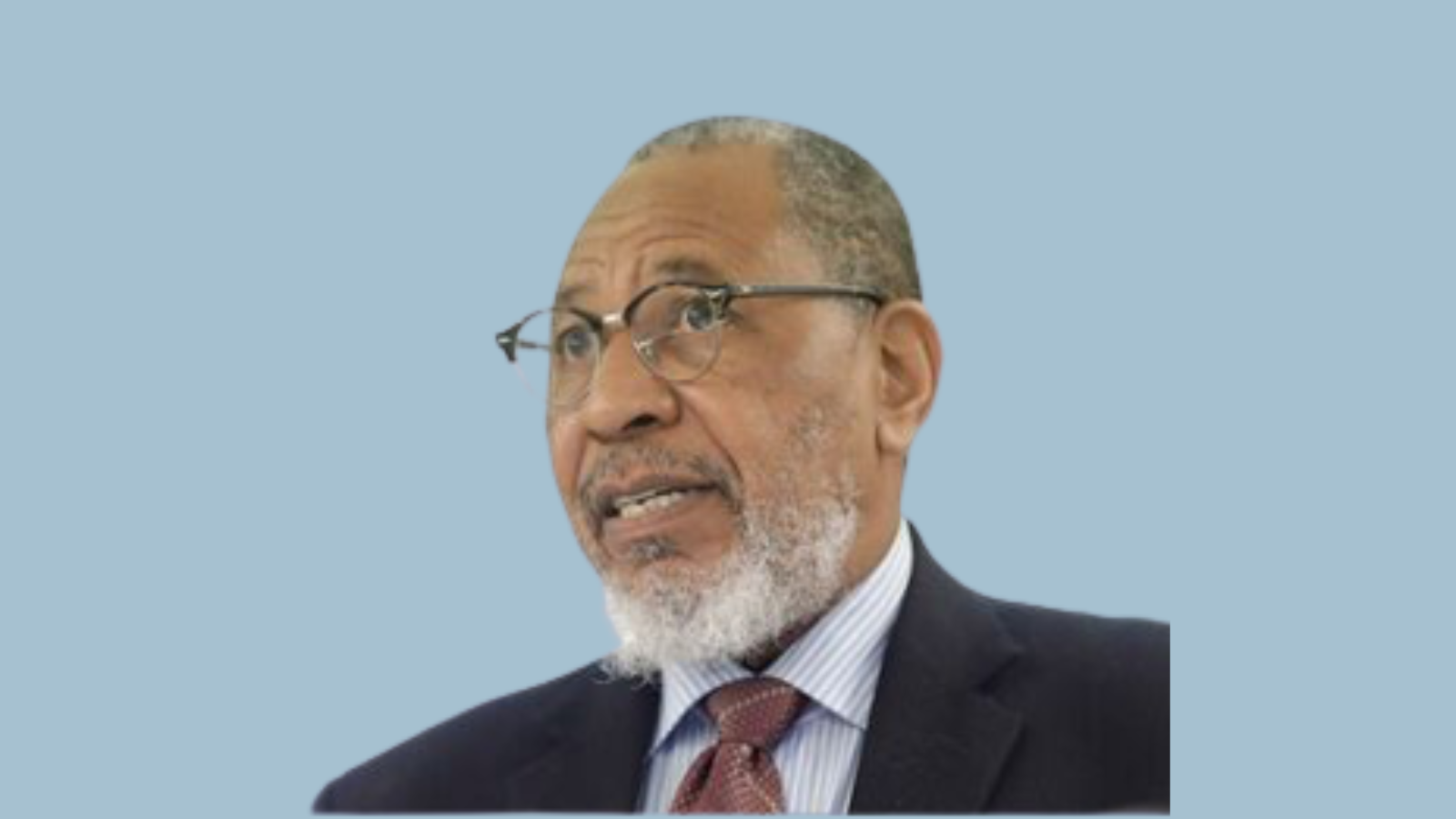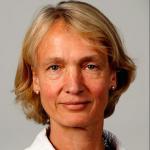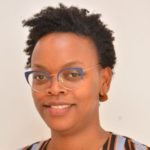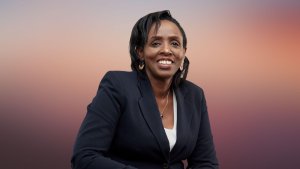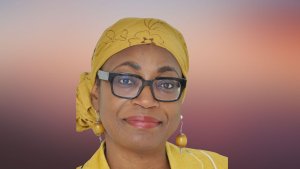Professor Youba Sokona, Vice-Chair of the Intergovernmental Panel on Climate Change (IPCC) and African energy specialist, on how the Ukraine conflict had re-shaped thinking amongst many Africans, and on the transformation in leadership needed to address the problems faced by the majority of Africa’s people.
Professor Sokona, from Mali, with over 40 years of experience addressing energy, environment, and sustainable development in Africa, has been at the heart of numerous national and continental initiatives. He is currently a Vice-Chair of the Intergovernmental Panel on Climate Change (IPCC) after serving as Co-Chair of the IPCC Working Group III and as Lead Author from 1990. He has held leadership positions in a number of organizations, such as the African Climate Policy Centre at UNECA, and as Executive Secretary of the Sahara and Sahel Observatory (OSS). He is affiliated with numerous boards and organizations including as Honorary Professor at University College London, Member of The World Academy of Sciences and the African Academy of Sciences, and of the Science Advisory Committee of the International Institute for Applied System Analysis. Professor Sokona, with his deep technical knowledge, extensive policy experience, and unreserved personal commitment to African-led development, is a figure of global importance in the fields of climate, energy, and sustainable development.
What have been for you the consequences of the Ukraine crisis for African countries? How does it look to you from your standpoint in Bamako or Dakar? We hear of problems with inflation, especially for food and fertilizer prices. How has it impacted the countries you know best?
This is not an easy question as it’s not my principal area of study. But I cannot immediately see why the crisis in Ukraine should have an impact on African people. It’s hard to understand, except that everything is related to everything else at a certain level. Can we ask an alternative question - what has been the impact of the crisis in the Sahel on Europe, or on the US? No one asks this question, but what does this tell us – that the Sahel does not exist and has no connection with other parts of the world?
The war in Ukraine does maybe give us an impetus to look at certain things. There are a number of fundamental issues in the region which need to be addressed. These basic questions have not just started now, they began with the structural adjustment programs of the 1980s and 90s. The real impacts of these changes have taken time to become visible to many people. Many still do not see the relationship between the two – between the crisis in the Sahel and the structural adjustment programs of 30-40 years ago.
On the Ukraine crisis, we have seen Senegal’s President Macky Sall as Chair of the AU, and President Umaro Embalo of Guinea Bissau, who is also Chair of ECOWAS the regional West African grouping, going to Russia to ask for wheat exports to be freed up. That may resolve the immediate problem of shortages. But this is just a stop-gap.
I am travelling all the time in many parts of sub-Saharan Africa, and I can see that wheat is not a dietary staple for ordinary people. It’s just the elite who depend on this commodity. The majority are not eating wheat. Africa has a comparative advantage in other cereals. Globally there are four major cereal regions – wheat in North America and Europe, rice in Asia, maize in Latin America, and millet and sorghum in Africa. In the Sahel, most people eat millet and sorghum, and these crops are also well adapted to the climate. We should ask why policymakers are not giving an impetus to local cereals which would help attain food security and sovereignty for the continent. As you know in Ségou, Mali, for breakfast people don’t eat bread and coffee, they eat mooni (millet porridge), and ngomi pancakes made from millet and cowpeas. Even in Dakar, I have found a place where I can buy ngomi and so I personally don’t eat bread at all at home. The majority of the people do not eat wheat, apart from the privileged few who have adopted European living conditions, only they eat wheat. The question is - should we focus on the problems of the elite, or those faced by the majority of the African population?
So far as energy and the Ukraine crisis are concerned, the main issue is largely related to natural gas. The consumption of natural gas on the African continent is minimal because the continent is exporting not importing gas. We need to seize this moment of disruption, which offers a huge opportunity to redefine the energy systems for the continent. There is a large geopolitical dimension to the conflict. The continent has clearly indicated it does not want to be part of the geopolitical game, and it will leave it to North America and Europe, against Russia and China, to sort things out themselves. The way the war has played out gives some sentiment to us Africans, whether legitimate or not, a feeling that we do not exist because we have been in the middle of many major crises, but no one was really interested in helping us. Take the case of the Sahel, and the fight against terrorist groups. I won’t use the term jihadists because really, they are just terrorists. The army asked for help but instead of sending arms, the Europeans said they would come and fight terrorists in the Sahel. But why then are they not also going to fight in Ukraine? It creates a negative sentiment for many Africans and opens their eyes. I am not saying this is good or bad, but these are some of the outcomes of the Ukraine crisis. And also, remember, in the beginning, we saw images of those Africans who had been living in Ukraine encountering a lot of problems trying to escape to Western Europe, with many barriers put in their way. We could all see the inequality of treatment if you are an African, in comparison with the rest of the world. This is what ordinary Africans have been seeing, and it represents a set of perspectives that are very different from the perspective of high-level African policymakers.
So, from your perspective, the Ukraine crisis has generated a big change in mindset, more than anything else. In North Africa, whether you’re rich or whether you’re poor you rely on eating bread made from wheat. Elsewhere in Africa, as you rightly remind us, millet and sorghum are very important. Have governments seized the moment to reinvest in the food sector?
In North Africa yes, everyone eats wheat, but this is different from sub-Saharan Africa. Last month, I was in Markala, central Mali, to visit the large Office du Niger irrigation scheme which currently grows rice, and spoke to young engineers there to get a sense of what they could do to respond to the current situation. They said in fact there is a large area of irrigable land with growing conditions that are much better for producing wheat than in Ukraine. But no one is looking at this possibility. It’s like the farming conditions further north near Diré in northern Mali where they have been growing wheat for many years. This situation is exactly what we have been seeing also in the case of the energy system. There is a big discussion today about energy choices. The African continent says it has a right to decide for itself to use its fossil fuel resources, just at the moment when everyone else is moving away from them. We have huge renewable energy potential to jump-start our energy systems in a completely different way and take a different direction from that done so far. But we are not investing in exploring these options. It’s the same situation for agriculture, in which large amounts of investment are needed to take agriculture in a new direction. There is huge potential in both agriculture and energy.
It is the responsibility of those on the continent to recognize and decide how best to exploit this potential. Here I would like to raise the crucial question of leadership on the African continent, a leadership that needs to pool together the various resources and opportunities we have which should be used for the benefit of the continent’s people. Political will is in short supply. We urgently need greater political will and ambition to greatly improve people’s well-being across Africa. To approach the issue at the regional level makes much more sense than trying to do things at the national level. Few individual countries have real viability but together they have much greater possibilities, so it must be a regional approach.
Are we moving to a new Cold War, and is this helpful for Africa in terms of opening up new opportunities for partnership?
There is certainly a huge opportunity for Africa today but unfortunately Africa remains in the trap created by structural adjustment programs, and they are not thinking about how to get out of it. One of the long-term effects of structural adjustment was to dismantle or weaken the education and health systems. There is no viability for education and training in many parts of Africa. We did not have a university system in Mali, for instance, before the Structural Adjustment Programme. We had what they call the Grandes Ecoles which train people to become immediately operational. Whether it is the Ecole National d’Ingénieur Bamako, Institut Polytechnique Rurale in Katibougou, Ecole Nationale Superieure, or Ecole Nationale d’Administration this is how they were conceived from the lower to the higher level. People were trained to tackle problems and respond to the needs of the country and its people. This was then transformed by the impacts of structural adjustment so that people acquired a degree but without any real knowledge, or any ability to get things done. Equally, health systems were dismantled, and privatization was pushed forward in a context where the bare minimum did not exist. In no country anywhere is the private sector going to put in place the basic infrastructure needed for development. This must be the role of the state. The public services were also dismantled so everyone can see how dysfunctional they have become. Public services were replaced by a series of projects, but by creating projects those people in the administration became corrupt since projects replaced the government systems. If you want to reform the government system in UK or Brazil or anywhere else, you need to start with the institutions – you cannot do it through projects. The proliferation and reliance on consultants meant that very limited capacity was built within the government, nor the ability to produce knowledge at the national level through public universities or research institutions.
During a recent visit to Senegal, I went to see the ISS offices in Dakar, an offshoot of the Institute for Security Studies (ISS) in South Africa. They are doing analytical work on a range of issues, generating valuable evidence, but why should an NGO be doing this rather than a national institution like the university? These are some of the fundamentals, created as a consequence of Structural Adjustment Programs. Countries have not looked seriously at the changes needed to put the public authorities back at the center of decision-making.
For you, the legacy of structural adjustment and its focus on markets and privatization took African countries in the wrong direction. Those policies have trapped African countries in an impossible position today. Instead, would you therefore argue it is vital to rebuild the state and its capacities if African countries are to tackle the multiple challenges and changes they face?
There are many fundamental questions and preconceived ideas. We need to analyze these to see how we will address them at the same time as the security issue, otherwise we won’t make progress. I have been traveling across the Sahel, including neighboring states like Côte d’Ivoire, Cameroun, and others to look at security, governance, and development. I spent time reflecting on the conflicts between farmers and herders, focusing especially on the problems facing herders. Most herders are from the Peul community, and if you look at the past 30-40 years, the herding system on which they have relied has completely changed over time due to many interrelated factors. We often don’t distinguish between the person who owns the animals and the one you see looking after them. In French we use the term berger to describe the person in the day-to-day management of the herd, but the owner of the cattle is likely to be someone completely different. After the big droughts of the 1970s and 80s, many cattle owners turned to other forms of enterprise. It is rare today to find somebody who has a herd of 200-300 or more head of cattle, which used to be sufficient for Peul households to rely on and live from. It’s no longer the case. If you take the farmers, they used to move between farming and the cities. After the harvest, many of them would leave and go to earn money in the cities, before returning home for the next farming season. This is how they could survive the difficulties of farming in the Sahel. But herders have no opportunity to follow this seasonal pattern of earning money. They must look after the animals, all through the year. Given that the herding system has been badly affected by so many changes, they have nothing else to do now. How else can they make a living? No one has been thinking about them and their options. They must find some kind of adaptation to their lives if they are to survive. They are locked into this pattern of herding. It’s the only thing they know. The cattle system has changed, the grazing environment has changed, and then you add on climate change. The entire production system has been transformed, with multiple adverse impacts. What else remains for them? This adversity is linked to violence in the region. The difference between the few that have and the great majority who have nothing – this big gap between rich and poor is something you find also in the US, UK, and many other parts of the world. You also find it in the cities where poor people live. Much of the violence stems from those areas, it’s normal. People must survive.
So how do you see a way of resolving the current conflict in the Sahel?
There would be a big economic opportunity if people stopped exporting live cattle and started exporting meat. In other parts of the world, such as Brazil or Argentina, people are not exporting live animals – they are exporting processed meat. So, there are huge opportunities for generating jobs and incomes to be looked at. But if we do not try and understand these issues, where the problem comes from, and take them seriously, it may look too difficult. Actually, it’s not difficult. It’s very straightforward. It’s easy to address these issues. Why are the Americans investing in fonio in the Sahel, when local people are not doing it themselves? The US wants a grain to take the place of quinoa. There are many such opportunities. The real issue is with high-level decision makers, the policymakers in our countries - they are the ones which need to act. It is not other people who will make the Africans develop. It will not be the people who imposed structural adjustment systems that will help Africa to rebuild social and political institutions. It has to come from us.
Turning now to the IPCC, where you have played an absolutely central role. You were co-chair of Working Group III and are now vice-chair of IPCC as a whole. You’ve just issued the synthesis of the 6th Assessment Report. What are the key messages for an African audience?
After many years with the IPCC, I will be leaving in the next few months. The synthesis you refer to brings together the summaries of all the WG reports on the physical science, impacts and adaptation, and mitigation, and the three special reports on 1.5 degrees, ocean and cryosphere, land and climate.
The world is still warming despite the policies and actions undertaken so far by many countries. It will continue warming without drastic and rapid mitigation of greenhouse gases and we need to do something about it without any delay. The report shows there is a wide variety of available and feasible options to mitigate and adapt to climate change. A deep cut in emissions is needed, and we must initiate a transition of all aspects of society including energy, land, urban, infrastructure, and industrial systems. All actions must be speeded up including a massive scale-up of investments. We need to start immediately. We cannot wait. And we have the means to do this, particularly the financial resources. It’s not because money does not exist - it is there, and we must mobilize it. High-level decision-makers must see this as an emergency.
We can see all kinds of extreme climatic events which previously we could not attribute to climate change. But now we can say clearly with robust evidence - these extreme events and the associated loss and damage are the product of climate change, and they have worsening consequences for humans and ecosystems worldwide. The problem for the African continent is that, being at a low latitude, we are amongst the regions most vulnerable to climate change. Add onto this social and environmental vulnerability, and you see the picture is very complicated.
During my recent travels in several African countries, I realized that countries are just not addressing the fundamentals of climate change. Yes, they are referring to the IPCC’s key findings but they need to integrate climate fully into their development strategy, making it resilient, climate-compatible, and able to address the well-being of the people. The IPCC report shows clearly there is no incompatibility between addressing the climate issue and improving the well-being of the people. They can be completely aligned, though we need to avoid potential trade-offs by carefully designing policies. Countries are drawing up their Nationally Determined Contributions (NDCs) which respond to the UNFCCC agenda but it’s not building more resilient development. Why is the Ministry of Environment principally in charge of climate change? Does this mean that climate change is only an environmental issue? I don’t think so. We must rebuild our infrastructure, urban, energy systems, our industrialization and transport systems. All must be designed completely differently.
Do you see some African leaders trying to take the lead? President Ruto is coming out very strongly on Kenya’s desire to reach Net Zero by 2030 and build more resilient systems. And he’s holding the African Climate Action Summit in September of this year, talking about African countries being champions of change, rather than victims, seeing climate as a positive lever for change… Does this give you hope for African leadership?
President Ruto has articulated his vision in a foreword he suggested for a report we will publish in the next few weeks titled Just Transition – A Climate, Energy, and Development Vision for Africa. This document is based on the work we have done through the African Renewable Energy Initiative launched at the 15th Conference of the Parties to the United Nations Framework Convention to Combat Climate Change and the Renewable Energy and Energy Efficiency Initiative for Sustainable Development for Least Developed Countries, launched two years later. We talk about the Just Energy Transition in the African context and take energy as a central driver for climate-compatible development. This report captures the fundamental elements of a clear vision and way forward for the development, energy, and climate nexus in African countries. I hope this publication with the foreword of President Ruto might influence some of Africa’s policymakers. Having seen the initial draft, President Ruto spontaneously offered to write the foreword for this publication.
I see also a desire from many in younger generations to better understand climate issues. I mentioned I had a meeting in Dakar with the ISS, who are involved with in-depth analysis on security and development issues in the greater Sahel. They asked me to come and give a talk to all their staff on climate issues. I also gave a talk at the University of Ségou on climate issues. The students who are doing their Master’s degree on the environment then asked if I would be willing to give them more in-depth teaching so I have been giving lectures there these past three months. Many younger people want better to understand. They are really excited about taking development as the entry point for addressing climate change. But this is not the case for most policymakers. We really need to show them that energy is an enabler to resolve many other aspects of development. You must understand that energy is not a sector like others but, like climate, is related to everything else.
I will be happy to no longer have the burden of IPCC after July, so I can concentrate on these other activities like teaching. We are thinking of creating a virtual institute as we have no money to build one out of concrete. We can do so much virtually, and we don’t want to pay people to sit in the office. This institute would combine research and teaching, based on the paper we published in Nature Energy entitled Africa needs context-relevant evidence to shape its clean energy future | Nature Energy, and will mobilize a wealth of knowledge on these different aspects. All the authors of that publication are willing to be part of the institute. We’ll define different workstreams at the micro- and macro-level, looking at evidence-based analysis, including capacity building.
What are your thoughts about the Great Green Wall project?
I am the one who coordinated the conception and design of the Great Green Wall (GGW). It was President Obasanjo of Nigeria who asked the African Union Commission (AUC) to work with CENSAD (the Community of Sahel-Saharan States). Former President of Mali, Alpha Oumar Konaré, was the then Chair of the AUC and he called me to visit him in Addis Ababa, Ethiopia. Al-Madani who was then Secretary General of CENSAD and from Libya invited me to Tripoli, and I agreed to help them both with this idea. I told them clearly the GGW as originally envisaged was stupid. But they said – “Youba, we can’t go to President Obasanjo and say this is a stupid idea. You must do something about this.” We then put together a group of African experts and a few experts from the north, for a meeting in Tunis. We came up with a plan, but we no longer proposed to plant trees from Dakar in Senegal to Djibouti in the east, but rather to initiate local development, including tree planting and developing the local economy. For me, the GGW is a metaphor for local development. It should not be thought of as a physical wall. It should have been a great opportunity to rethink local development, forestry, environment, and health since you can have a big impact by bringing these things together. Take the baobab tree for example, since its fruit has big nutritional value, or the zaban fruit or the shea nut. I am not aware of any serious research work on the zaban, and how to improve its productivity, yet the tree can produce all year round if it has sufficient water. Apart from the edible fruit, you can also extract oil from the seeds. We should look at all these positive social and environmental implications. We should see the GGW as an entry point for local development across the region, including in urban areas where it can help to clean the air so that trees can be integrated into the broader economy, society, and environment.
When the Pan-African Agency for the GGW was established in Nouakchott, I asked myself - why create a new agency when we have existing mechanisms, such as the CILSS (Comité permanent inter-Etat de Lutte contre la Sécheresse au Sahel) which was established more than 40 years ago? This is why we are convinced we should set up a virtual institute since our work can be done from anywhere - we don’t want or need a physical institute somewhere. We must avoid building a new bureaucracy if the idea is really to solve problems.
My last question is about carbon markets, where there is a growing interest across Africa. You will have seen the report on African Carbon Markets launched at COP27. President Ruto of Kenya is keen on generating carbon credits and establishing a more ambitious market across the continent, to provide additional sources of revenue. What is your view of the role that carbon markets can play in generating finance and contributing to mitigation?
I will refer you to the paper we published when the Clean Development Mechanism was launched in the late 1990s[1]. I do not yet see a significant emissions market as relevant to Africa, because current emissions are so low. The opportunity which exists relates to the sequestration of carbon in soils and vegetation. But there are many risks and uncertainties in relation to this in the case of Africa. Many countries have high levels of insecurity, so there are no guarantees of permanence. And then there is also the risk of fire. If you have a fire, then everything goes up in smoke. Back in 1997-8, I could see that carbon markets were not a viable method for addressing mitigation, and could be seen as akin to cheating unless you want to avoid emissions rather than reduce them. We should focus on carbon markets perhaps as a means to leapfrog energy systems and help the continent to move away from fossil-fuel-based development, allowing a more rapid shift to low or zero-carbon energy generation. This would mean, in effect, you are paying for avoided emissions. If you don’t help countries in this way, they will head down a fossil-fuel-powered development path, as this is known and familiar.
I am currently working with HE Mahamadou Issoufou, former President of Niger, who is chairing a panel on security, governance, and development questions for Sahelian countries. I have been traveling across the Sahel and visiting universities throughout the region. I find it astonishing that there is so little research and understanding of the links between climate change and the current violence and conflict in the region.
I am very glad to hear that HE Issoufou can benefit from your advice.
I am not sure how useful I am, because I am not a conventional person!
Maybe this is the great value you can bring.
Endnote
[1] Y.Sokona, S. Humphreys, J.P.Thomas, 1998. “What Prospects for Africa?” in Issues and Options: The Clean Development Mechanism. UNDP.
